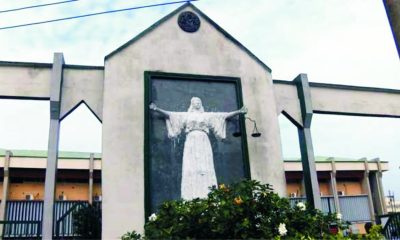Business
RVHA Urges Resuscitation Of Water Facilities
The Rivers State House of Assembly Committee on Water Resources, has called for the resuscitation of facilities at the State Water Board to ensure effective supply and distribution of water to Port Harcourt and its environs.
Chairman of the committee, Hon. Martins Amaewhule, stated this yesterday during a facility visit to the board in Port Harcourt, as part of the committee’s oversight functions.
Hon Amaehule decried the low awareness of the activities of the board by the public and decay in existing infrastructure, and implored the ministry to ensure that existing facilities were maintained while working on new designs to cope with the urban renewal policy of the government.
He reiterated the need for proper public awareness campaign to build public interest in the activities of the board.
Hon Amaewhule representing Obio/Akpor Constituency I, observed that most of the water distribution channels in Port Harcourt were not functional, a development which he said had resulted in acute water scarcity in the city.
In her reaction, the Commissioner for Water Resources and Rural Development, Patricia Simon Hart, thanked the committee for the visit, and assured on the preparedness of the ministry to ensure effective water supply in Port Harcourt and its environs.
The commissioner said that the board was producing water but that its distribution network was hampered by the on-going road expansion projects in the city.
She explained that water distribution was capital intensive, and solicited private sector participation to facilitate the process of supply and effective distribution in line with the new implementation of the ministry.
Also speaking, the acting General Manager of the board, Mr Martins Omeo said the board was poised to ensure that the production, treatment and distribution of water in the state were carried out in line with required standards.
The committee also visited the water pump station in Rumukrushi in Obio/Akpor Local Government Area and three pump stations at Deken, Yeghe and Ferabor in Gokana Local Government Area.
Taneh Beemene
Business
NPA Assures On Staff Welfare
Business
ANLCA Chieftain Emerges FELCBA’s VP
Business
NSC, Police Boost Partnership On Port Enforcement
-
Sports5 days ago
Lagos Holds African Fencing Champs
-
Rivers5 days ago
Rivers NYCN Wants Sokubo For Second Term
-
Rivers5 days ago
Rivers Pledges Support For Enhanced Maritime Security
-

 News5 days ago
News5 days agoRivers Remains Your Willing Partner For Enhanced Maritime Operations, Ibas Tells Navy
-

 Niger Delta5 days ago
Niger Delta5 days agoRSNC Head Charges NAOMEW On Professionalism, Effective Service Delivery
-

 News5 days ago
News5 days agoReps Probe Police Over Alleged ?6bn Contract Splitting, Asset Sales
-
Sports5 days ago
Give Rest Of ‘94 Eagles Their Houses – Amuneke
-

 News5 days ago
News5 days agoRivers High Court Judges Begin 2025 Vacation, July 21

